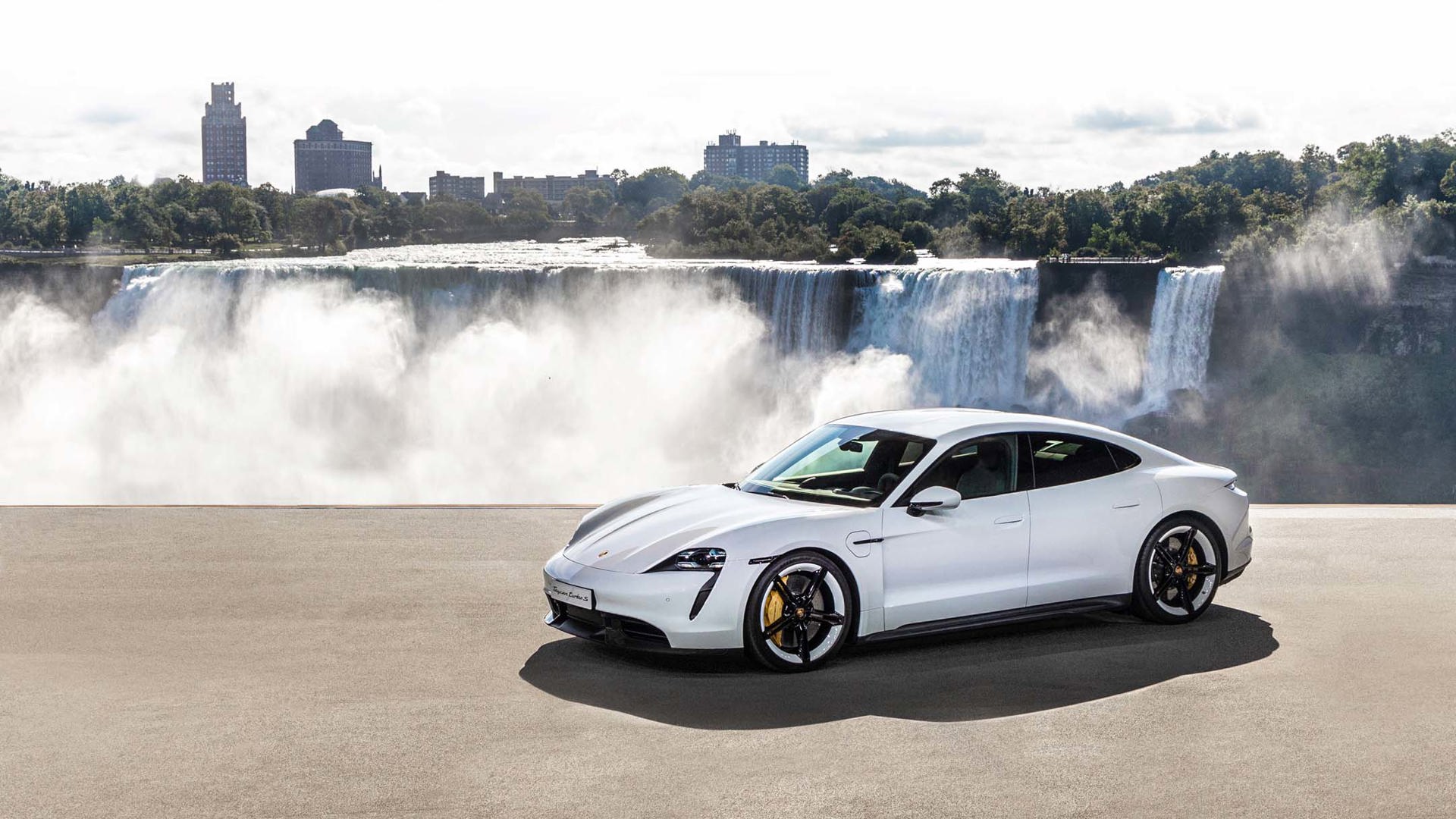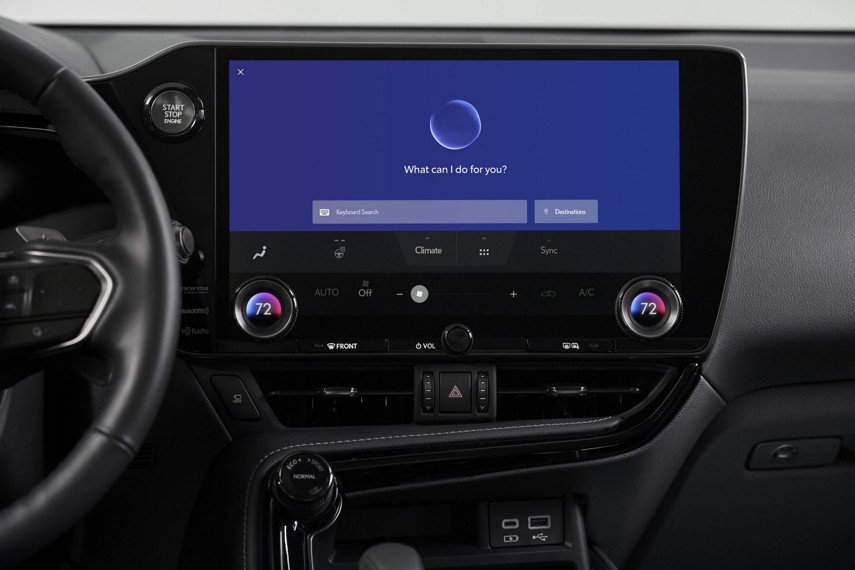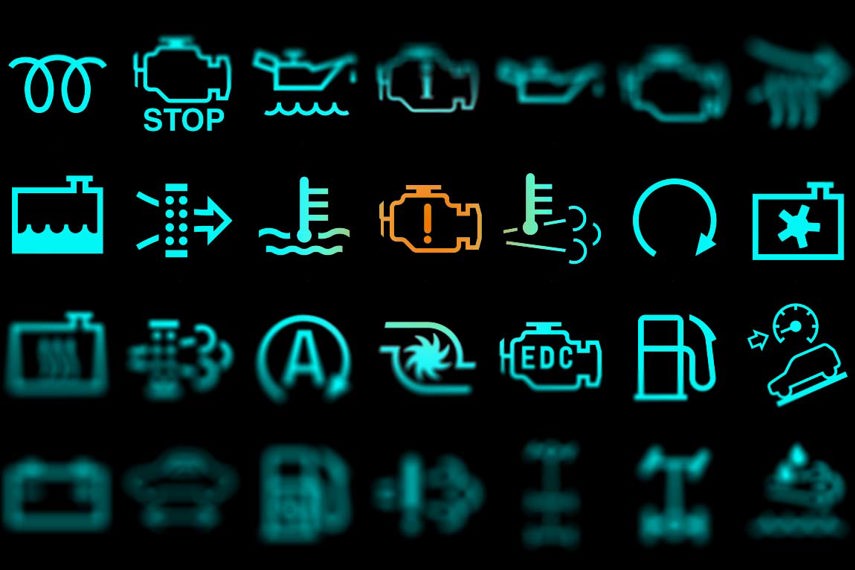While artificial intelligence (AI) is the new buzzword in the technology world, AI is also becoming a big trend in the automotive industry for many good reasons. Automakers embracing AI-powered features in their existing and future vehicles can see substantial benefits for their customers.
In basic terms, AI in cars uses advanced algorithms and sensors to allow vehicles to perceive their surroundings, make decisions, and carry out actions without a driver’s intervention. AI is usually associated with self-driving vehicles, but it’s already being incorporated into cars, trucks, and SUVs you can buy today, enabling safety, vehicle customization, in-car assistants, and vehicle maintenance. AI can’t brush the snow off your car on a cold Canadian morning – at least, not yet! But let’s take a look at how AI is benefitting new cars now and how it might impact the vehicles of the future.
Safety and Autonomous Driving
![]()
One of the most significant applications of AI in automobiles is to improve safety. AI has been critical in developing various advanced driver assistance systems (ADAS), like lane departure warning, autonomous emergency braking, and adaptive cruise control, by alerting drivers to potential hazards and taking preventive actions.
For example, one of the auto industry’s largest suppliers, Canada’s Magna International, says AI will play an essential role as autonomous vehicles hit the road via object detection and classification that help vehicles identify weather conditions, traffic volume, and speed limits. Waymo, a division of Alphabet Inc., has also gathered millions of autonomous driving kilometres, gaining significant progress in the development of future AI-driven vehicles.
Vehicle Customization

AI’s massive analytical capabilities can discover and analyze new car buyers’ wants and desires. This means automakers can leverage this information to produce highly personalized offers and content.
Today, Porsche’s online Car Configurator offers an AI-powered “Recommendation Engine” that suggests vehicle builds based on shoppers’ preferences. Currently available to customers in markets outside of Canada, Porsche’s new car-building tool is based on millions of data points from the German automaker’s existing Car Configurator. Porsche says more than 270 machine-learning models were trained for specific markets and derivatives; the Recommendation Engine is more than 90 per cent accurate and is “self-optimizing” based on new data, improving over time.
In-Car Virtual Assistants

Many drivers find that voice recognition technology can be one of the most frustrating features in new cars. Although intended to allow the driver to keep their eyes on the road, most voice recognition systems inevitably require multiple attempts, with drivers eventually giving up and reverting to the appropriate knob or touchscreen button to change a setting. These systems are limited in their capabilities, and drivers often have to use very specific language or trigger words to make them work.
But AI voice recognition may be the breakthrough automakers and owners are wishing for. An AI-enhanced system can offer a personalized driving experience by “learning” a driver’s settings for such features as climate control, music, seat position – and more – by automatically adjusting the vehicle to suit their needs. More importantly, these newer AI-powered voice-activated assistants boast the ability to use natural human language to operate.
AI-powered in-car assistants were one of the top trends at this year’s Consumer Electronics Show. BMW announced it was using Amazon’s new Alexa LLM (a Large Language Model that can understand conversational phrases, respond appropriately, and complete multiple requests from one command) as the base for its new voice assistant called BMW Intelligent Personal Assistant. Rival German automaker Mercedes-Benz said it is integrating AI into its latest vehicle operating system with a new voice assistant called Mercedes-Benz User Experience Virtual Assistant that will create “the most human-like interface with a Mercedes-Benz yet” and can operate in four “emotional profiles” – natural, predictive, personal, and empathetic. At the same time, Volkswagen announced a partnership between its Cariad software division and Cerence (an AI company specializing in automotive technologies) to add ChatGPT to its existing voice assistant later this year.
Navigation

The most significant gains in AI-powered in-car assistance may come from advancements in navigation. Such systems could accurately estimate how long trips could take, optimize the route efficiently, and effectively offer personalized recommendations for nearby locations (such as suggested restaurants and gas stations) based on the driver’s preferences. AI navigation can also suggest routes gathered from real-time sources (traffic cameras, GPS, road quality, and more) based on past traffic trends.
Vehicle Maintenance

Avoiding costly car repairs by being proactive on vehicle maintenance is one of the best practices to keep your overall ownership costs down. What if your AI-powered car, truck, or SUV could let you know when a part is about to break or needs service before you’re stranded on the side of the road?
This is where AI can step in by analyzing sensor data to find potential problems before they become critical. AI can then assist with scheduling an appointment for the applicable maintenance and suggesting possible options.
AI Is Here to Stay
Although it might not be known to the casual new car shopper, AI has already significantly impacted the car driving experience, and its impact on your next new car will only continue to grow.

